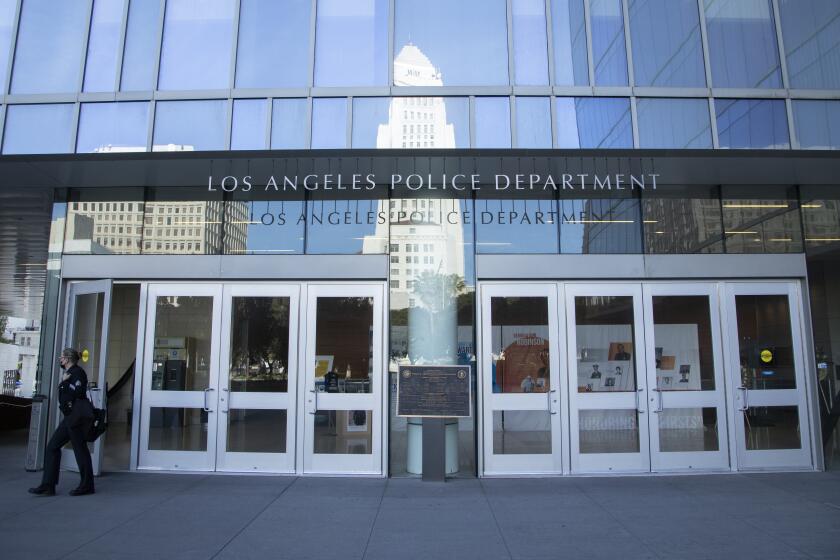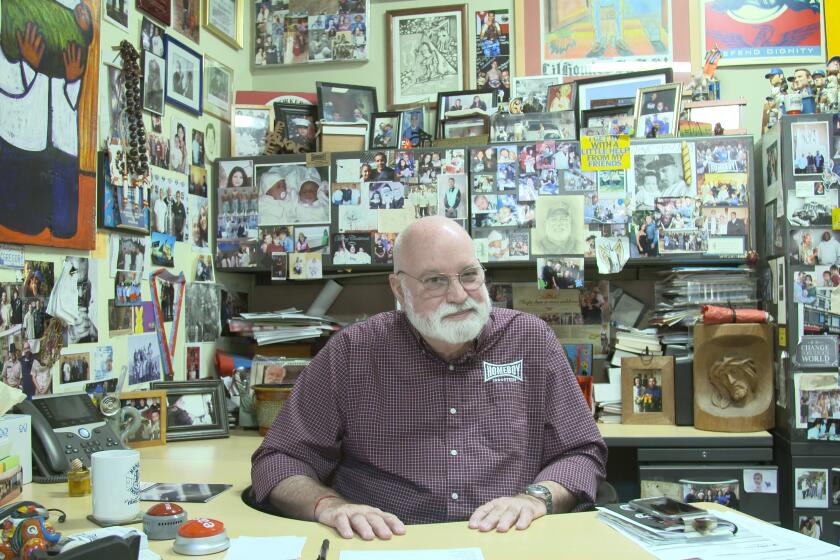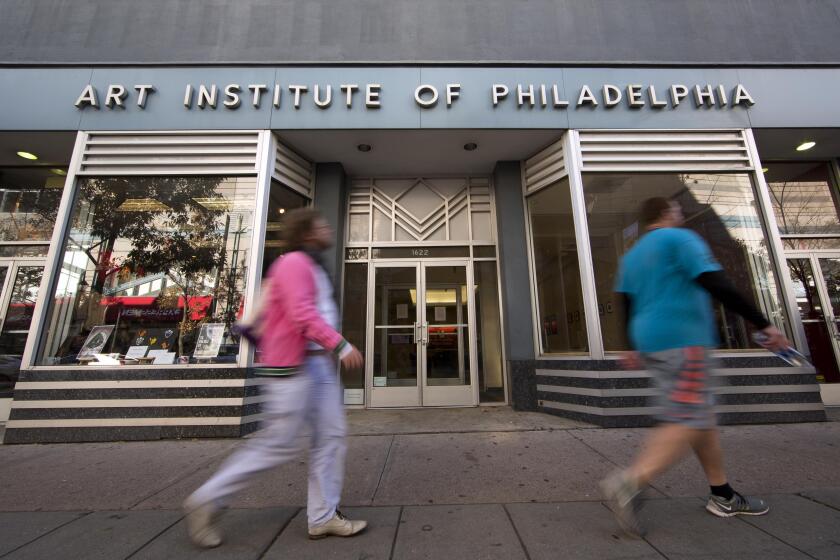Jews Face Work, School Conflicts on High Holy Days
Jeff Schreiber, a Costa Mesa mail carrier for 19 years, had a dilemma. Rosh Hashana, the Jewish New Year, landed on a Saturday earlier this month and, try as he might, he could not get out of work on the highest of Jewish holidays.
The post office relented, and Schreiber had to work just three hours on Rosh Hashana instead of the entire day. Though his struggle became public, dozens of other such situations arise that are typically handled in more private arenas.
Every year, the Jewish Federation and the Anti-Defamation League, along with rabbis, temple social action committees and individuals, do battle behind closed doors for students threatened with unexcused absences and workers unable to take time off from work to observe Rosh Hashana and Yom Kippur.
The holidays, the holiest in the Jewish faith, began last week with the celebration of the Jewish New Year and will culminate tonight and Monday when Jews gather for Yom Kippur, the Day of Atonement.
A somber period during which Jews reflect and repent, Yom Kippur begins at sundown tonight with the Kol Nidre service and continues through sunset Monday. Jews traditionally fast and spend the day in prayer as a way to renew their faith and seek forgiveness.
Thousands of Orange County Jews will attend local synagogues to connect with their heritage and religion.
The need to spend Yom Kippur in traditional prayer and cease work and secular study has long been a source of conflict for Jews.
*
Rabbi Bernie King, president of the Board of Rabbis of Orange County and rabbi at Irvine’s Temple Shir Ha-Ma’alot, said that it is a religious requirement for Jews to gather in synagogues to observe Yom Kippur.
“It is an obligation by Jewish law and a major fulfillment of the Jewish identity,” King said of the need to take time off from work or school.
The Jewish law requiring attendance at a synagogue can present a dilemma for Jews, King added: “There can be a conflict of loyalty and inner integrity.”
King remembered a situation recently in which a Jewish starting quarterback for a high school football team had to decided whether to play on one of the High Holy Days.
“We shouldn’t be put in that position,” King said. “I believe he decided not to play, but it was a big decision for him and his team.”
The conflicts could be avoided in many cases if officials paid attention to when the holidays fall before they schedule events.
The Jewish calendar differs dramatically from the secular calendar, forcing the High Holy Day period to vary from year to year.
Jewish leaders agree that because the holidays do not fall on the same day every year, schools and businesses often fail to plan for the needs of the Jewish community.
“I’m convinced that 95% of the stuff that happens is from ignorance,” said Joyce Greenspan, regional director of the Anti-Defamation League of Orange County and Long Beach. “I don’t believe it’s intentional.”
Greenspan, who helped mail carrier Schreiber negotiate with the postal service to take Yom Kippur off, said that other such situations occur when schools or businesses are too rigid with their rules.
*
Locally, the ADL receives six to 10 complaints during every holiday period, most of which can be remedied with a telephone call or meeting, Greenspan said. The league is the most commonly called organization when such a situation arises, she added.
Rabbi Michael Mayersohn of Temple Beth David in Westminster said that he also receives calls every year, generally from parents concerned about exams or assignments scheduled for the holidays.
“Every secular calendar has Rosh Hashana and Yom Kipper--there is really no excuse for a major event to be scheduled on these days,” Mayersohn said.
To heighten awareness, the Jewish Federation of Orange County, the American Jewish Committee and the ADL have recently mailed more than 10,000 calendars highlighting the Jewish holidays for the next decade to schools and organizations throughout the county.
“This is a way of informing people,” said Beverly Jacobs, chairwoman of the federation’s Community Relations Council. Jewish leaders agree that sensitizing and educating the public will reduce the number of incidents in the future.
“I don’t see this as a legal issue but an interpersonal and social issue,” said Temple Beth David’s Mayersohn. “We have trouble realizing that people live different lives than our own.”
Several Orange County congregations have established social action committees, directed to help with these and other issues important to the Jewish community. One is Temple Beth Sholom of Orange County in Santa Ana.
Susie Amster, the temple’s executive director, said that Jews should be absolved of the responsibility to make a choice on the High Holy Days.
All the same, Amster said: “Rosh Hashana and Yom Kippur are very holy days. But if somebody has a reason why they need to work and can’t go to services, to me they should strive to be good Jews and people 365 days a year. One day is not as relevant as what they do with their whole lives.”
More to Read
Start your day right
Sign up for Essential California for news, features and recommendations from the L.A. Times and beyond in your inbox six days a week.
You may occasionally receive promotional content from the Los Angeles Times.






